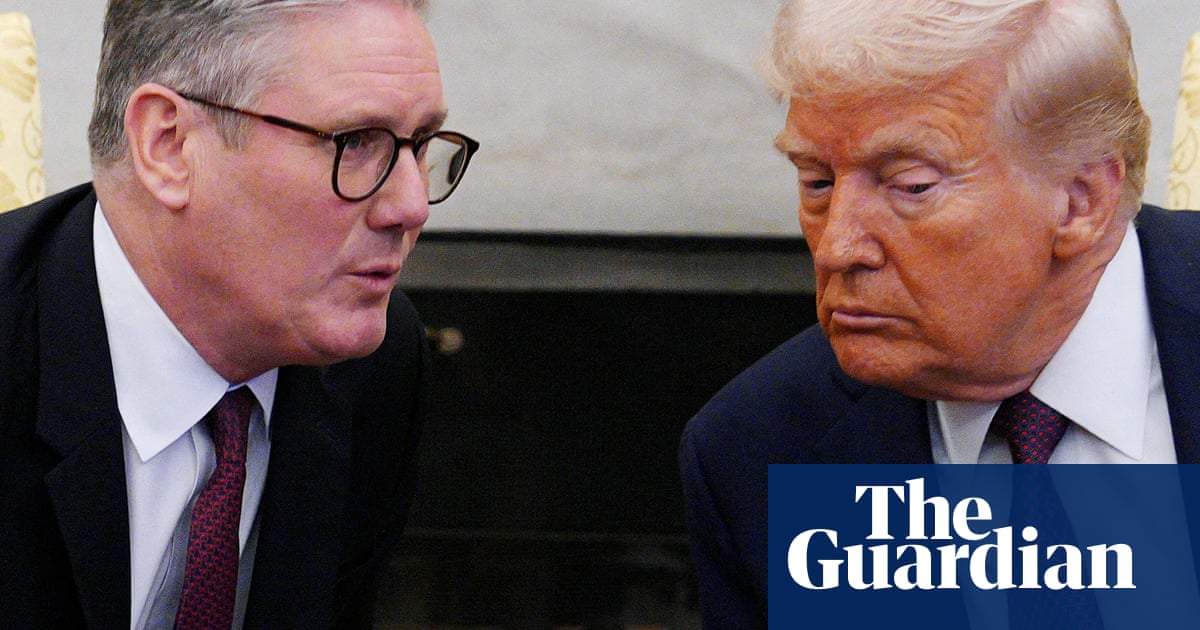The UK and United States are expected to announce a trade agreement, the first by the White House since Donald Trump announced global tariffs.
Downing Street said Keir Starmer would make a statement on trade talks with the US on Thursday.The Guardian US reportedthat the UK has reached an agreement with Trump.
The agreementis likely to focus on lowering US tariffs on specific products, such as British steel, aluminium and cars.
Trump said on Wednesday that he was preparing to announce “a major trade deal with representatives of a big and highly respected country”. In a post on Truth Social, he promised it would be the “first of many”.
A No 10 spokesperson said: “The prime minister will always act in Britain’s national interest – for workers, for business, for families. The United States is an indispensable ally for both our economic and national security. Talks on a deal between our countries have been continuing at pace and the prime minister will update later today.”
It is unclear whether further talks will be needed or whether any reduction in tariffs will be temporary or permanent. The deal is not expected to be a comprehensive trade agreement.
The trade deal would be the first Trump has agreed with any country. It would be a victory for Starmer, who has been seeking to reduce the impact of sweeping tariffs that the US presidentannounced last month.
Senior British negotiators have beenin Washington DC this weekworking to get a deal over the line before a UK summit with the EU on 19 May, while ministers are simultaneously pursuing closer ties with Brussels.
Two of the outstanding issues in the US talks were Trump’s tariffs on the pharmaceutical andfilm industries, both of which would be highly damaging for the UK.
UK ministers have offered concessions including lower tariffs on some US products and changes to the digital services tax on US tech firms. They have ruled out lowering food standards that ban chlorine-dipped chicken or hormone-fed beef from being sold in the UK.
The US tariffs include a 10% import tax on all UK exports and a 25% charge on steel, aluminium and cars. The 10% baseline tariff is not expected to change.
John Healey, the defence secretary, said: “The US is an indispensable ally for the UK, both on economic and national security grounds”. He told Times Radio: “Since the prime minister visited the White House in February we have been in detailed talks about an economic deal.”
JD Vance, the US vice-president,raised hopes of a breakthroughin talks with the UK three weeks ago when he said there was “a good chance that, yes, we’ll come to a great agreement that’s in the best interest of both countries.”
Earlier this week, Starmer announced that afree trade agreement with Indiahad been concluded after more than three years of negotiations. This will lower tariffs on a range of British exports including cars and whisky, and Indian imports including clothing and some food items.
Trump’s tariffs gave impetus to the negotiations with Delhi, with both the UK and India seeking to mitigate their impact. India is also in advanced talks for a deal with the US.
The Liberal Democrats called for parliament to be given a vote on any US-UK deal “so it can be properly scrutinised”.
Daisy Cooper, the party’s deputy leader, said: “If the government is confident the agreement it has negotiated with Trump is in Britain’s national interest, it should not be afraid to bring it before MPs.”
